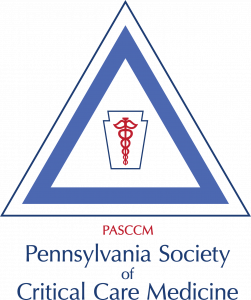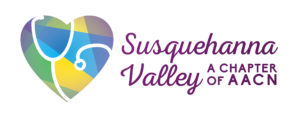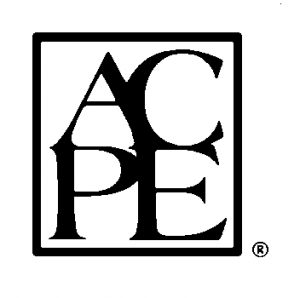Select this button to navigate the sections of this page
Conference ID
D7071
Partner/Sponsor
Pennsylvania Chapter of the Society of Critical Care Medicine (PASCCM) and Susquehanna Valley Chapter of the American Association of Critical Care Nurses (SVAACN)


Purpose/Overview
This annual conference is designed to promote the scientific evaluation of methods of care and to translate current literature into strategies to optimize the care of the critically ill patient.
Audience
Physicians, Advanced Practice Clinicians, Nurses, Respiratory Therapists, Pharmacists, Dietitians and Health Care Professionals involved in critical care may benefit from attendance.
Overall Objectives
- Develop a plan to apply knowledge gained to promote quality care of critically ill patients as provided by the multi-professional team.
- Evaluate evidence-based management strategies in critical care for incorporation into practice.
- Identify areas in critical care for further study, improvement and research.
Agenda
- 7 a.m. | Check-In/Posters/Exhibits
- 7:45 a.m. | Welcome
Pennsylvania Chapter of the Society of Critical Care Medicine (PASCCM)
Lori Demko MSN, ACNP-BC, CCRN
Joshua Marks MD, FACS, FCCMSusquehanna Valley Chapter of the American Association of Critical Care Nurses (SVAACN)
Aimee Lee Anderson, MSN, BS, RN, CCRN
Karen Good, MSN, RN, CCRN, ACCNS-AG - 8 a.m. | Opening Plenary
Collaboration and Team Dynamics: Do We Really Need it to Impact Outcomes in the ICU?
Lauren Sorce, PhD, RN, CPNP-AC/PC, FAAN, FCCMObjectives
- Define collaboration and team dynamics.
- Explain collaboration and team dynamics research.
- Apply strategies of collaboration and team dynamics to the workplace.
- 9 a.m. | Move to Concurrent Session
- 9:05 a.m. |
Concurrent Session 1A
Cardiogenic Shock: Medications to Machines
Navitha Ramesh, MD, FCCPObjectives
- Recognize clinical signs and symptoms associated with cardiogenic shock.
- Discuss medical management for cardiogenic shock.
- Review indications for escalation to mechanical circulatory support (MCS), including extracorporeal membrane oxygenation (ECMO).
Concurrent Session 1B
Can Phenobarbital Ease the Burden of ICU Admissions for Alcohol Withdrawal?
Zaffer Qasim, MD, FRCEMObjectives
- Describe the pathophysiology of severe alcohol withdrawal as it relates to current pharmacologic intervention.
- Identify challenges with implementing a phenobarbital monotherapy pathway for alcohol withdrawal.
- 10:05 a.m. | Break/Exhibits/Posters
- 10:30 a.m. | Philip Drinker Society Lecture – Emerging Patterns in Substance Use: Updates on the Evolving Drug Supply
Joseph D’Orazio, MD, FAAEM, FACMT, FASAM, FCPPObjectives
- Characterize the current trends in the drug supply in the Philadelphia region, including the increasing presence of fentanyl analogues, non-fentanyl analogues, xylazine, medetomidine, and others.
- Recognize the clinical challenges associated with polysubstance exposure, including xylazine-fentanyl, medetomidine, and atypical withdrawal syndromes associated with these drugs.
- Identify strategies for acute management and harm reduction in patients presenting with complications related to counterfeit pharmaceuticals and novel synthetic substances.
- 11:30 a.m. | Move to Concurrent Session
- 11:35 a.m. |
Concurrent Session 2A
Optimizing Outcomes of Patients on Prolonged Mechanical Ventilation
Samuel Hammerman, MD, MMMObjectives
- Recognize best practices in the approach to vent liberation in PMV patients
- Discuss care of the tracheostomy in PMV patients.
- Describe the critical role that speaking valves play in outcomes in PMV patients.
Concurrent Session 2B
PASCCM In-training Grant Awardee Presentation
Presentations and Trials and Liberations: Spontaneous Breathing Trial Durations at an Academic Medical Center
Alexandra Lopez, MDObjectives
- Review the literature looking at the complications associated with prolonged intubation as well as optimal duration of spontaneous breathing trials.
- Examine the retrospective data on duration of spontaneous breathing trials at Hershey Medical Center and potential contributing factors.
- Propose a timed intervention that we will implement at Hershey Medical Center with the aim of reducing duration of spontaneous breathing trials.
Miller Fisher Syndrome with Overlapping Guillain-Barré Features Leading to Respiratory Failure: A Case Report
Zaw Naing, MDObjectives
- Review differential diagnosis of rare neuromuscular conditions that are commonly encountered in critical care medicine.
- Discuss pathophysiology, clinical presentation, diagnostic testing and treatment of rare neuromuscular diseases.
Undiagnosed Urea Cycle Disorder Revealed by ICANS Toxicity and Immunotherapy
Sneha Reddy, DOObjectives
- Discuss management of hyperammonemia in the critical care setting.
- Explain differential and suspicion for inborn errors of metabolism especially in critically ill patients.
- 12:35 p.m. – 1:50 p.m. | Lunch/Exhibits/Posters/Product Theater
- 1:05 p.m. – 1:50 p.m. | Product Theater
- 1:50 p.m. | Plenary Session
Normothermic Regional Perfusion (NRP)
Marty Sellers, MD, MPHObjectives
- Describe normothermic regional perfusion rationale and technique.
- Answer ethical questions surrounding DCD and NRP.
- Discuss NRP impact: increased organ availability, improved post-transplant outcomes, and potential to eliminate waitlist deaths.
- 2:50 p.m. | Break/Exhibits/Posters
- 3 p.m. |
Concurrent Session 3A
Bad Bugs, New Drugs: A Focus on Treatment of Resistant Gram-Negative Pathogens
Erin McCreary, PharmD, BCIDPObjectives
- Describe gram-negative antibiotics approved in the last ten years and in the pipeline
- Determine optimal treatment approaches for AmpC-producing Enterobacterales
- Discuss optimal treatment of drug-resistant Pseudomonas aeruginosa, Stenotrophomonas, and Acinetobacter baumannii
Concurrent Session 3B
Acute Respiratory Distress Syndrome (ARDS) in Pregnancy
Morgan Oskutis, MDObjectives
- Describe how the current standard of care for pregnant patients with ARDS should closely resemble that of non-pregnant patients, including key similarities and a few important exceptions.
- Explain one or two areas in which continued research is needed on how to best care for pregnant patients with ARDS.
- Describe some of the basic changes in the respiratory system that occur with pregnancy which differ from the nonpregnant patient.
- 4 p.m. | Move to Closing Plenary
- 4:05 p.m. | Closing Plenary
Where is the Evidence? A Review of the Literature or Lack thereof Behind some Common Practices in the ICU
John Madara, MD and Joshua Marks MD, FACS, FCCMObjectives
- Explore the evidence-based medicine of common practices in the ICU.
- Review the literature that is used in clinical practice guidelines.
- Evaluate possible new indications for old drugs.
- 5:05 p.m. | PASCCM Awards for Case Study and Scientific Poster
- 5:10 p.m. | Closing Remarks/Adjournment
- 5:15 p.m. | PASCCM Business Meeting
Chairs
Lori Demko MSN, ACNP-BC, CCRN
Committee Chair
Chief Acute Care Nurse Practitioner UPMC Altoona
Pittsburgh Critical Care Associates, Inc.
Joshua Marks MD, FACS, FCCM
Committee Vice-Chair
Associate Professor
Medical Director, SICU
Medical Co-Director, Center for Operational Resource Efficiency (CORE) and Transfer Center
Program Director, Surgical Critical Care Fellowship Program
Associate Program Director, General Surgery Residency Program
Sidney Kimmel Medical College at Thomas Jefferson University
Committee
Aimee Lee Anderson, MSN, BS, RN, CCRN
Nurse Manager, Intensive Care Unit
Penn Medicine Lancaster General Hospital
SVAACN Board Member
Barbara Birriel, PhD, ACNP-BC, FCCM
Associate Research Professor
Penn State Nese College of Nursing
Sandralee Blosser, MD, FCCM
Professor Emeritus, Penn State
Lori Cox, MSN, ACNP-BC, CCRN, FCCM
Program Director, Critical Care Advanced Practice Provider Fellowship
Penn State Health Milton S. Hershey Medical Center
Karen Good, MSN, RN, CCRN, ACCNS-AG
Clinical Nurse Specialist
UPMC Pinnacle, Harrisburg Hospital
SVAACN Board Member
Amanda Holyk, PharmD, MBA, BCCCP
Clinical Pharmacy Supervisor
Mount Nittany Medical Center
John Madara, MD
Assistant Professor of Medicine
Associate Program Director, Pulmonary/Critical Care Medicine Fellowship
Penn State College of Medicine
Penn State Health Milton S. Hershey Medical Center
Niels Martin, MD, FACS, FCCM
Chief, Division of Traumatology, Surgical Critical Care, & Emergency Surgery
Vice Chair, Diversity Equity & Inclusion
Director, Traumatology & Surgical Critical Care Fellowship Programs
Associate Professor of Surgery
Department of Surgery; Perelman School of Medicine
University of Pennsylvania
Jefferson Mixell, MBA, RRT, RRT-ACCS
Manager Respiratory Care
Penn State Health Milton S. Hershey Medical Center
Ashley Quintili, PharmD, BCPS, BCCCP
Clinical Specialist – Surgical/Anesthesia ICU
Penn State Health Milton S. Hershey Medical Center
Navitha Ramesh, MD, FCCP
Program Director, Critical Care Medicine Fellowship
UPMC Harrisburg
ICU Medical Director, UPMC Community
UPMC Central PA
Margaret Wojnar, MD, MEd, FCCM
Professor of Medicine
Division of Pulmonary and Critical Care Medicine
Penn State College of Medicine
Penn State Health Milton S. Hershey Medical Center
Daniel Wu, DO, FACOS, FACS, FCCM
Trauma & Acute Care Surgery
Penn Medicine – Lancaster General Health
ICU Surgical Co-Director
Trinity Health – St Mary Medical Center
Presenters
Joseph D’Orazio, MD, FAAEM, FACMT, FASAM, FCPP
Associate Professor of Emergency Medicine
Cooper Center for Healing, Addiction Medicine & Medical Toxicology
Department of Emergency Medicine
Cooper Medical School of Rowan University
Cooper University Health Care
Samuel Hammerman, MD, MMM
Assistant Professor of Medicine
EVP, Chief Medical Officer, Select Medical
Division of Pulmonary, Critical Care, and Sleep Medicine
Penn State College of Medicine
Penn State Health Milton S. Hershey Medical Center
Alexandra Lopez, MD
Fellow
Division of Allergy, Pulmonary, and Critical Care
Penn State Health Milton S. Hershey Medical Center
John Madara, MD
Assistant Professor of Medicine
Associate Program Director, Pulmonary/Critical Care Medicine Fellowship
Penn State College of Medicine
Penn State Health Milton S. Hershey Medical Center
Joshua Marks MD, FACS, FCCM
Committee Vice-Chair
Associate Professor
Medical Director, SICU
Medical Co-Director, Center for Operational Resource Efficiency (CORE) and Transfer Center
Program Director, Surgical Critical Care Fellowship Program
Associate Program Director, General Surgery Residency Program
Sidney Kimmel Medical College at Thomas Jefferson University
Erin McCreary, PharmD, BCIDP
Clinical Assistant Professor of Medicine
Director of Infectious Diseases Improvement and Clinical Research Innovation UPMC
University of Pittsburgh
Zaw Naing, MD
Fellow, Critical Care Medicine
Cooper University Hospital
Morgan Oskutis, MD
Core Faculty, Critical Care Fellowship and Emergency Medicine Residency
UPMC Harrisburg, UPMC Community
UPMC Central PA
Zaffer Qasim, MD, FRCEM
Associate Professor
Emergency Medicine, Critical Care, and Prehospital Care
University of Pennsylvania Health System
Navitha Ramesh, MD, FCCP
Program Director, Critical Care Medicine Fellowship
UPMC Harrisburg
ICU Medical Director, UPMC Community
UPMC Central PA
Sneha Reddy, DO
Resident, Internal Medicine
UPMC Community Osteopathic
Marty Sellers, MD, MPH
Medical Director
Gift of Life Donor Program
Lauren Sorce, PhD, RN, CPNP-AC/PC, FAAN, FCCM
Senior Scientist, Division of Pediatric Critical Care
Pediatric Critical Care Nurse Practitioner and Nurse Scientist
Ann and Robert H. Lurie Children’s Hospital of Chicago
Assistant Professor, Northwestern University Feinberg School of Medicine
Credit
AMA
Penn State College of Medicine is accredited by the Accreditation Council for Continuing Medical Education (ACCME) to provide continuing medical education for physicians.
Penn State College of Medicine designates this live activity for a maximum of 7 AMA PRA Category 1 Credit(s). Physicians should claim only the credit commensurate with the extent of their participation in the activity.
Patient Safety
This activity includes 4 hours of patient safety/risk management education as required by the Pennsylvania State Board of Medicine.
American Association for Respiratory Care (AARC)
This activity has been approved for a maximum of 7.00 contact hours Continuing Respiratory Care Education (CRCE) credit by the American Association for Respiratory Care, 9425 North MacArthur Blvd Suite 100, Irving, TX 75063. Course #194578000
Accreditation Council for Pharmacy Education (ACPE)
 Penn State Health Milton S. Hershey Medical Center is accredited by the Accreditation Council for Pharmacy Education as a provider of continuing pharmacy education.
Penn State Health Milton S. Hershey Medical Center is accredited by the Accreditation Council for Pharmacy Education as a provider of continuing pharmacy education.
This knowledge-based activity has been assigned the Universal Activity Number of 0322-0000-25-014-L01-P. It has been approved for 7 contact hours (0.7 CEU) of continuing pharmacy education credit in states that recognize ACPE providers. The attendee list will be uploaded into CPE Monitor approximately two weeks after completion of the program. Statements of credit indicated in contact hours and CEUs will be available through CPE Monitor. Successful completion includes signing in at registration with personal NABP number and date of birth, attending the entire conference (no partial credit will be awarded), and completing the activity evaluation. Penn State Health Milton S. Hershey Medical Center complies with the Accreditation Standards for Continuing Education.
The American Association of Critical-Care Nurses (AACN)
Application has been made.
Fees
The fee is $165 per person and includes the cost of instruction, online handout materials and all listed meals.
PASCCM fee is $65
SVAACN fee is $125
Payment is required at the time of registration. If you have any questions or concerns, please email us at ContinuingEd@pennstatehealth.psu.edu.
Registrations received after Thursday, Aug. 14, will incur a $25 late fee.
Cancellations received after Friday, Aug. 8, will be assessed a $25 processing fee.
No refunds will be made for cancellations received after Tuesday, Aug. 12.
Accommodations
Accommodations are the responsibility of the program participant. A list of Hershey area lodging is available upon request or online at ce.med.psu.edu/lodging.
Local Attractions
Join us in Hershey
Hershey is conveniently located in central Pennsylvania, just 90 minutes from Baltimore and Philadelphia, two hours from Washington, D.C., and three hours from New York City.
Evaluation
A completed evaluation is required in order to receive a certificate for attending this activity. Please complete and submit the evaluation within the specified time frame.
Cancellations
The University reserves the right to cancel or postpone any course or activity because of insufficient enrollment or other unforeseen circumstances. If a program is canceled or postponed, the University will refund any program registration fees paid but cannot be held responsible for any related costs, charges or expenses, including cancellation/change charges assessed by airlines or travel agencies.
Program registrants who are experiencing illness or have been exposed to anyone who is ill should contact the Continuing Education office before attending any in-person activities.
Changes
Content and speakers for all programs are subject to change. Registrants will be notified of any significant updates.
COVID-19
On-campus educational activities provided by Penn State College of Medicine Continuing Education are required to follow healthcare facility guidelines. Off-campus events provided by Penn State College of Medicine Continuing Education follow the COVID-19 requirements of that venue. We ask that all participants respect that some attendees may still choose to wear masks for activities. Check the venue website for the latest requirements and recommendations. Please do not attend this activity if you have symptoms or have been exposed to someone with COVID-19. By attending the activity, you attest that you do not have any symptoms suggestive of COVID-19, which may include fever, cough, shortness of breath, sore throat, loss of taste, loss of smell or any other sign of illness.
Access (ADA)
Penn State encourages people with disabilities to participate in its programs and activities. Participants who anticipate needing any type of special accommodation or who have questions about the physical access provided should contact the Continuing Education office at least one week in advance of participation or visit.
Disclosure and Conflict of Interest (COI and Educational Balance)
It is Penn State policy to ensure balance, independence, objectivity and scientific rigor in all educational activities. Penn State has a process in place to mitigate any relevant financial relationships with commercial companies disclosed by faculty, course directors and planning committee members. Complete disclosure information will be provided to participants at the beginning of the activity.
University Nondiscrimination Policy
This publication is available in alternative media on request. The Pennsylvania State University is committed to the policy that all persons shall have equal access to programs, facilities, admission and employment without regard to personal characteristics not related to ability, performance or qualifications as determined by University policy or by state or federal authorities. It is the policy of the University to maintain an academic and work environment free of discrimination, including harassment. The Pennsylvania State University prohibits discrimination and harassment against any person because of age, ancestry, color, disability or handicap, genetic information, national origin, race, religious creed, sex, sexual orientation, gender identity or veteran status and retaliation due to the reporting of discrimination or harassment. Discrimination, harassment or retaliation against faculty, staff or students will not be tolerated at The Pennsylvania State University. Direct all inquiries regarding the Nondiscrimination Policy to the Affirmative Action Director, The Pennsylvania State University, 328 Boucke Building, University Park, PA 16802-5901; 814-863-0471 (TTY). US M.Ed. D7071
